
The Church of Sweden is an Evangelical Lutheran national church in Sweden. A former state church, headquartered in Uppsala, with around 5.4 million members at year end 2023, it is the largest Christian denomination in Sweden, the largest Lutheran denomination in Europe and the third-largest in the world, after the Ethiopian Evangelical Church Mekane Yesus and the Evangelical Lutheran Church in Tanzania.

Lars Olof Jonathan Söderblom was a Swedish bishop. He was the Church of Sweden Archbishop of Uppsala from 1914 to 1931, and recipient of the 1930 Nobel Peace Prize. He is commemorated in the Calendar of Saints of the Lutheran Church on 12 July.

The Catholic Church in Sweden is part of the worldwide Catholic Church in communion with the Pope in Rome. It was established by Archbishop Ansgar in Birka in 829, and further developed by the Christianization of Sweden in the 9th century. King Olof Skötkonung is considered the first Christian king of Sweden.
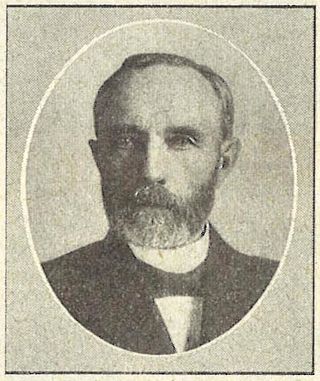
Johan August Ekman was Archbishop of Uppsala, Sweden, 1900–1913.
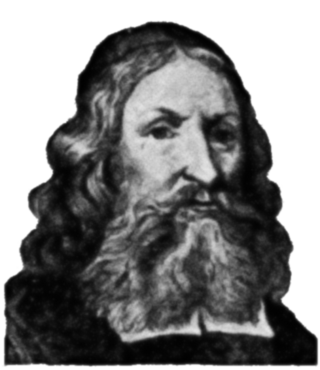
Olaus (Olov) Svebilius was a Swedish priest and professor. He was Bishop of the Diocese of Linköping and Archbishop of Uppsala. His most notable work was Martin Luthers Lilla katekes med Katekesförklaring, a Swedish language translation and explanation of Luther's Small Catechism.
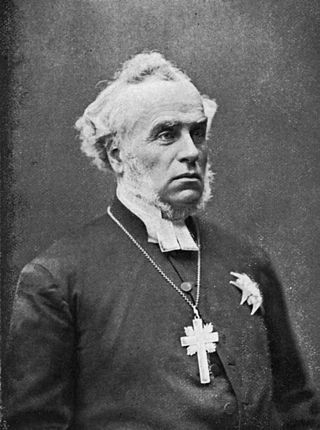
Anton Niklas Sundberg was a Lutheran clergyman, and the Church of Sweden archbishop of Uppsala 1870–1900.

Christina Odenberg is the retired bishop of the Diocese of Lund in Sweden between 1997 and 2007.
Ecce Homo was a controversial exhibition of 12 photographs of different biblical situations, in modern surroundings, taken by the Swedish photographer Elisabeth Ohlson Wallin. The first vernissage of the exhibition was in Stockholm, July 1998 and attracted much attention. When the exhibition was shown in the cathedral of Uppsala in September it caused a national debate. The reactions was often very emotional, and both positive and negative. The photos portrayed Jesus among homosexuals, transgender people, leatherpeople and people with AIDS, sometimes in erotic situations. The exhibition toured Scandinavia and continental Europe between 1998 and 2004. An Ecce Homo exhibition opened in October 2012 in the Belgrade Pride festival in Belgrade, Serbia, and was guarded by a number of riot police, due to rioting in the ensuing controversy.
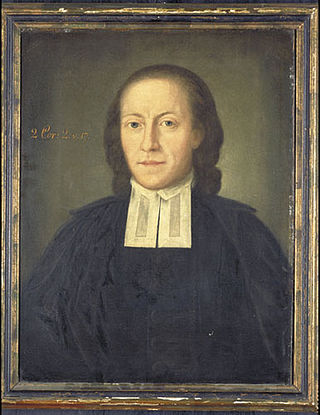
Henric Schartau was a Swedish Lutheran pietistic priest. His theology, including his characteristic teachings on the "order of grace", influenced a revivalist movement known as Schartauanism.
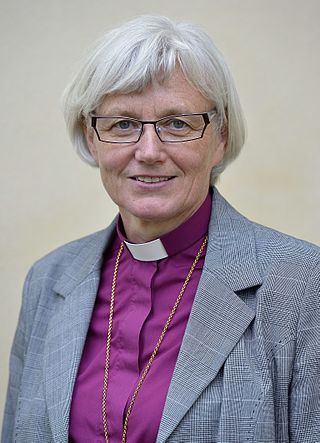
Antje Jackelén is archbishop emerita and primate emerita of the Church of Sweden, the national church. On 15 October 2013, she was elected the 70th Archbishop of Uppsala and formally received through a service in Uppsala Cathedral on 15 June 2014, making her Sweden's first foreign-born archbishop since the 12th century, and the first female archbishop.

Per Ragnar Theodor Persenius was the Bishop of Uppsala from 2000 till his retirement in 2019. He previously headed the Church of Sweden's Department of Theology and Ecumenism.

Ann Helen Heberlein is a Swedish academic and author, who writes extensively on theology and ethics. She is best known for her autobiographical account of life with bipolar disorder, Jag vill inte dö, jag vill bara inte leva.

Olof Sundby was a Swedish bishop within the Church of Sweden. He was the archbishop of Uppsala in the period 1972–1983.
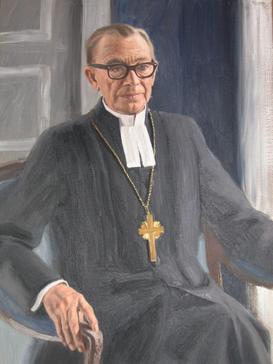
Ruben Josefson was a Swedish bishop within the Church of Sweden.

Gunnar Axel Engelbrekt Hultgren was a Swedish bishop within the Church of Sweden. He was the Archbishop of Uppsala between 1958 and 1967.
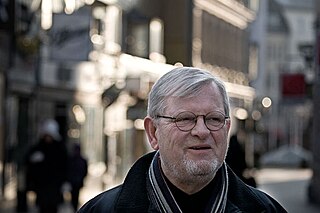
Martin Claes Lind is bishop emeritus of the Diocese of Linköping in the Church of Sweden and former bishop of the Lutheran Church in Great Britain. He was Bishop of Linköping from 1 February 1995 to 2 March 2011. He was appointed bishop of the Lutheran Church in Great Britain in January 2014 and retired in 2019.

Maritta Tuulikki Koivunen Bylund is a Finnish-Swedish theologian. She was appointed Bishop of Härnösand in central Sweden on 8 November 2009; she was the fourth woman to be ordained as a bishop in the Church of Sweden. She retired on 13 December 2014.

Bengt Mikael Mogren is a Swedish bishop, theologian and author.
Algot Tergel, born 8 August 1906 in Kyrkhult congregation, Blekinge County, died 12 October 1996 in Sigtuna congregation, Stockholm County, was a swedish priest, teacher and author.
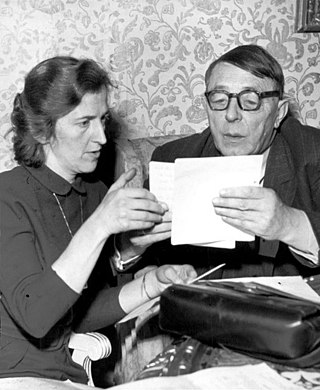
Margit Rigmor Sahlin (1914–2003) was a pioneering Swedish Lutheran priest. On Palm Sunday, 10 April 1960, she became one of the first three female priests in Sweden when she was ordained by Archbishop Gunnar Hultgren in the Saint Catherine Foundation chapel at Österskär near Stockholm. The same day Ingrid Persson was ordained in Härnösand Cathedral and Elisabeth Djurle in Stockholm.




















